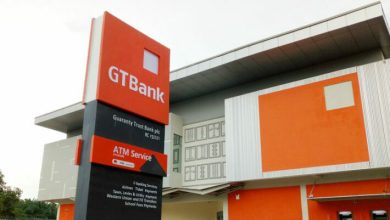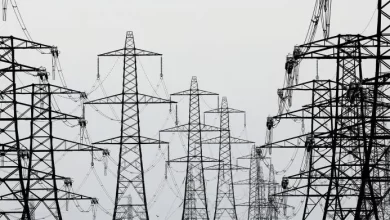FEC may approve N8.60trn 2018 budget estimates this week

With Matthew Denis
There are indication that the Federal Executive Council (FEC) may receive, consider and approve the N8.60 trillion 2018 budget estimates at its weekly meeting this Wednesday.
Ministry of Budget and National Planning last week submitted the Medium Term Expenditure Framework (MTEF), upon which the budget proposal is based to the National Assembly for consideration.
Minister of State, Budget and National Planning Mrs Zainab Ahmed said at the closing ceremony press conference of National Economic Summit that President Muhammadu Buhari will submit the budget proposal to National Assembly before end of October.
Also, Director General, Budget Office of the Federation Mr Ben Akabueze said in an interview in Abuja that both National Assembly and the Executive arm of government have agreed that the proposal will be submitted before the end of this month.
Details of the MTEF, showed that aggregate revenue to fund the 2018 budget is projected at N5.65 trillion (11.0 percent or N562.50 billion over the 2017 estimate of N5.08 trillion).
Also, 43.2 percent of this is projected to come from oil sources while the balance is to be earned from non-oil sources.
Aggregate expenditure is estimated at N8.60 trillion (this include grants and donor funding of N199.91 billion naira).
“This provision exceeds 2017 aggregate expenditure estimate of N7.44 trillion by 15.5 percent (or about N1.16 trillion).
Of the total expenditure estimates, about N2.60 trillion or 30.0 percent of the budget, which includes capital in transfers will be devoted to capital expenditure, representing.
Noting that the 2018 budget proposal is based on Economic Recovery and Growth Plan (EPRG), the 2018-2020 MTEF provided N1.93 trillion to address the constraints which had previously incapacitated the power sector.
“Other key spending includes personnel cost which is estimated at N2.12 trillion and debt service of N2.03 trillion.”
Another key highlight of the document is the fiscal deficit, estimated to increase by about N592.75 billion or 25.0 percent from the estimate of N2.36 trillion in 2017.
“Although this remains below the maximum (that is, 3% of GDP) stipulated in the Fiscal Responsibility Act, 2007, it is however higher than the projected levels in the ERGP.
“Thus, initiatives are ongoing to explore ways of generating additional revenues to bring down the fiscal deficit by way of government assets ownership restructuring/sales.
“It is projected to take a downward turn afterwards over the medium term.”
Although the Debt Management Office (DMO) insists that country’s debt to GDP ratio is well within legal threshold, there is a popular consensus that the amount debt service to revenue is already worrisome.
According to 2018-2020 MTEF, “Nigeria’s public debt stock remains within acceptable debt thresholds despite the recourse to debt financing to cover the significant decline in government revenues due to lower international oil prices.
“Nigeria’s total public debt stock at the end of the first quarter of the 2017 fiscal year was N19.16 trillion (or US$62.9 billion), representing about 18% of nominal GDP.
“The projected Net Present Value (NPV) of Total Public Debt to GDP at the end of 2016 is 13.5%.
“Although this is approaching the Nigeria Debt Management Office (DMO) stipulated threshold for NPV of public debt to GDP of 19.39%, it is well below the World Bank’s debt sustainability threshold of 56% for Nigeria and other peer countries based on its Country Policy and Institutional Assessment (CPIA) index ranking.”
Federal Government’s domestic debt stock accounts for 63 percent of the total debt stock, the states’ domestic debt is 15% while the external debt of both the Federal and State Governments represents the residual of 22 percent.
Domestic debt represents 80 percent of the debt stock of the federation.
Government projects GDP to grow at 3.5 percent in 2018, contrary to both International Monetary Fund (IMF) and World Bank forecasts, estimating Nigeria to grow by about 1.8 percent in 2018; while inflation is expected to moderate to 12.42 percent.
“Although Nigeria’s debt stock places it at a low risk of debt distress, rising debt service payments relative to revenues have become a source of concern as it places a squeeze on government’s ability to fund its expenditure programmes.
“Due to the decline in government revenues, the debt service payment trend is worrying, and it emphasises the need for government to grow its revenues and reduce borrowing costs as well as borrowing.
“Of greater concern is the contribution of domestic debt service payments to the debt service ratio as domestic debt service is currently 91.3% of total debt service.”





